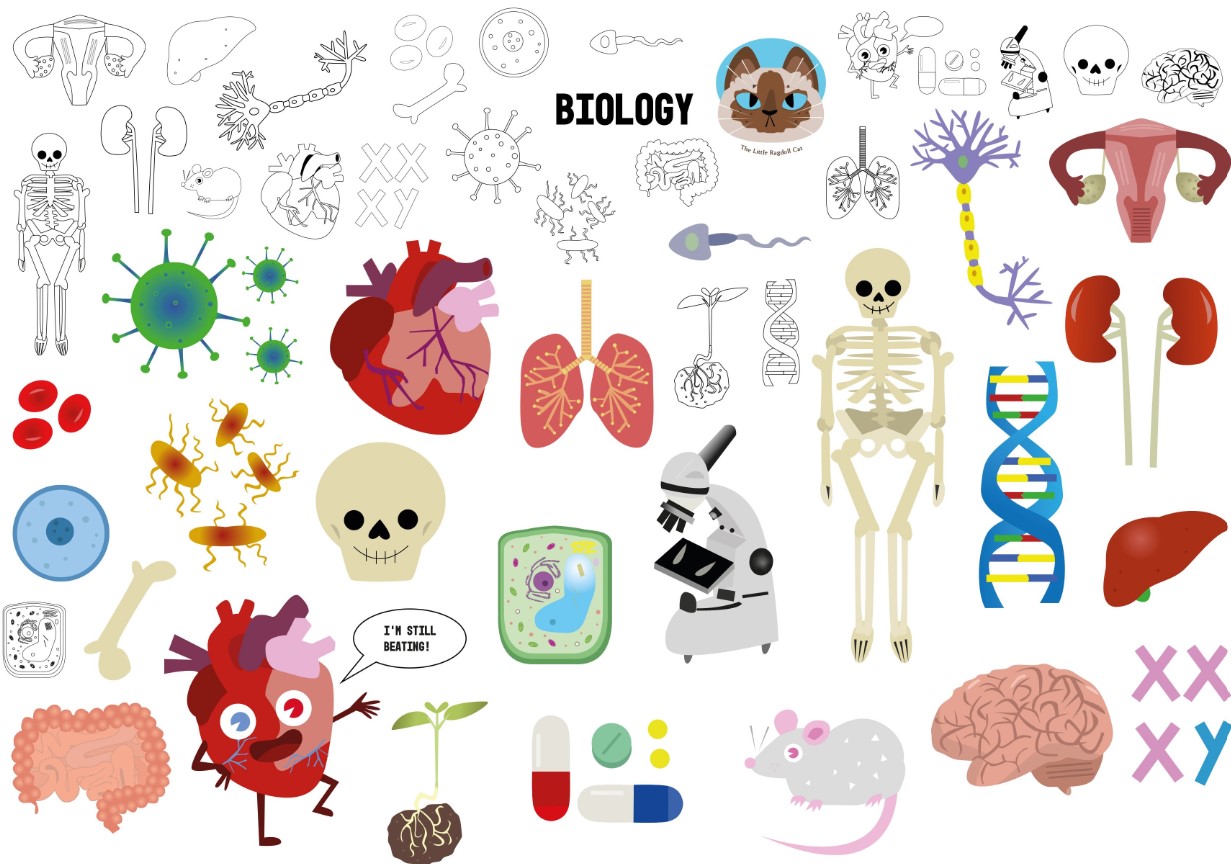Biology
Biology is the scientific study of living organisms and their interactions with each other and their environments. It is one of the major branches of science and plays a crucial role in our understanding of life on Earth.
Some key aspects of biology in the context of science:
-
Study of Life: Biology is focused on the study of life in all its forms, from the smallest microorganisms to complex multicellular organisms like plants and animals. It explores the processes and mechanisms that make life possible.
-
Organisms: Biologists study a wide variety of living organisms, including bacteria, fungi, plants, animals, and humans. They examine the structure, function, growth, reproduction, and behavior of these organisms.
-
Hierarchical Organization: Biology recognizes a hierarchical organization of life, starting from the molecular and cellular levels (molecular biology and cell biology) and extending to organisms, populations, communities, and ecosystems.
-
Evolution: Evolution is a fundamental concept in biology. It explains how species change over time through mechanisms like natural selection, genetic drift, and mutation. Charles Darwin's theory of evolution by natural selection is a cornerstone of modern biology.
-
Genetics: The study of genetics, a subfield of biology, focuses on the inheritance of traits and the role of genes in determining an organism's characteristics. It encompasses areas such as DNA structure, gene expression, and genetic variation.
-
Ecology: Ecology examines the relationships between organisms and their environments. It investigates topics such as ecosystems, food chains, biodiversity, and the impact of human activities on the environment.
-
Physiology: Physiology is the study of how living organisms function. It involves understanding the mechanisms and processes that allow organisms to carry out essential functions such as respiration, digestion, and circulation.
-
Biotechnology: Biology has practical applications in biotechnology, where researchers use biological principles and techniques to develop products and processes that benefit society, including genetically modified organisms (GMOs), medical treatments, and biofuels.
-
Medical Science: Biology is closely linked to the field of medicine. It is essential for understanding diseases, developing medical treatments, and conducting medical research.
-
Taxonomy: Taxonomy is the science of classifying and naming living organisms. It provides a systematic way to categorize and study the diversity of life on Earth.
-
Conservation Biology: This subfield of biology focuses on the preservation and protection of biodiversity and natural habitats. Conservation biologists work to understand and address threats to ecosystems and endangered species.
-
Interdisciplinary Nature: Biology often intersects with other scientific disciplines, such as chemistry, physics, and environmental science, to address complex questions about life and the natural world.
In summary, biology is a diverse and dynamic field of science that explores the living world and its various aspects. It plays a crucial role in our understanding of life, the environment, and the processes that govern the natural world.
Biology has wide-ranging applications in fields such as medicine, agriculture, conservation, and biotechnology.
